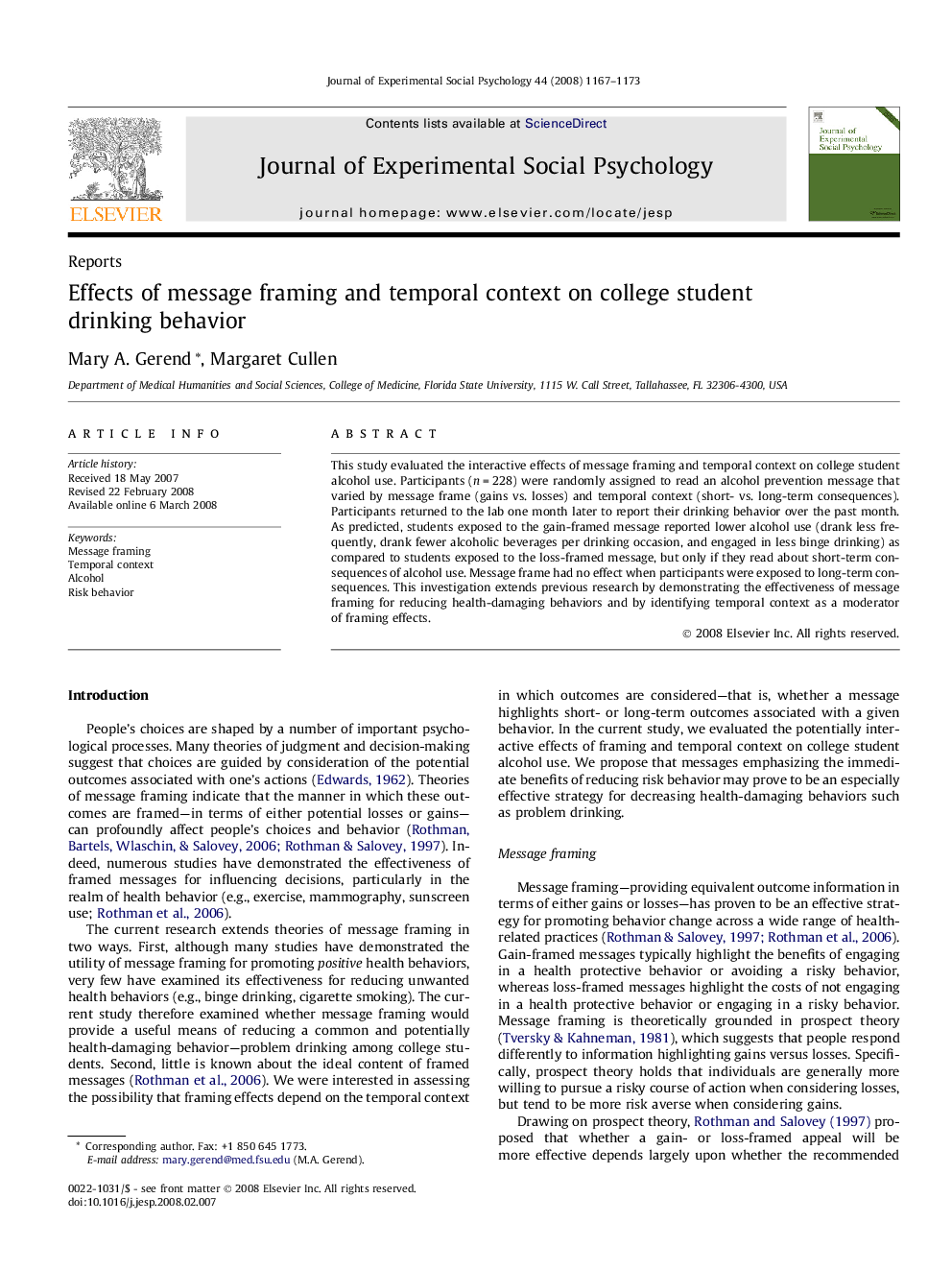| Article ID | Journal | Published Year | Pages | File Type |
|---|---|---|---|---|
| 10468633 | Journal of Experimental Social Psychology | 2008 | 7 Pages |
Abstract
This study evaluated the interactive effects of message framing and temporal context on college student alcohol use. Participants (n = 228) were randomly assigned to read an alcohol prevention message that varied by message frame (gains vs. losses) and temporal context (short- vs. long-term consequences). Participants returned to the lab one month later to report their drinking behavior over the past month. As predicted, students exposed to the gain-framed message reported lower alcohol use (drank less frequently, drank fewer alcoholic beverages per drinking occasion, and engaged in less binge drinking) as compared to students exposed to the loss-framed message, but only if they read about short-term consequences of alcohol use. Message frame had no effect when participants were exposed to long-term consequences. This investigation extends previous research by demonstrating the effectiveness of message framing for reducing health-damaging behaviors and by identifying temporal context as a moderator of framing effects.
Related Topics
Life Sciences
Neuroscience
Behavioral Neuroscience
Authors
Mary A. Gerend, Margaret Cullen,
